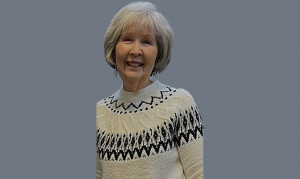Everyone has a story. Or many stories. Every person, uniquely, owns a piece of history.
A cherished friend of mine was a helicopter pilot during Vietnam. Twice, his helicopter was shot down in the midst of battles. As it is recorded, that was a horrendously uncivilized war. I have never known anyone who fought in those jungles, who was not scarred mildly or severely.
Then there’s my friend, Sue, who grew up in jail. In the 1950s, when the South was in a turbulent time between the beginning of the Civil Rights movement and the Dixie Mafia reign, Sue’s father was a county sheriff. The family lived in the back of the jail so, firsthand, she saw some of the South’s most notorious criminals. The small insights she gave, filled in bits of history here and there.
Daddy’s first cousin, J.C., was captured twice during World War II. Once by the Italians when his plane was shot down off the Italian coast. He and two buddies managed to escape, after several months, only to recaptured again. This time, by the Germans.
For many years, he would not talk about those years in captivity.
“Don’t you dare ever ask him about it,” Mama told me firmly. She knew my curiosity and that I liked to dig into stories.
But one day, when he had retired from teaching and grown gray with age, he began to talk. I stopped by to see him once to ask a question about his parents and, there in the living room of the nice brick house that he and his wife, Jessie Mae, had built, he began talking of those war years. He spoke not with graveness but with a lightness and, at points, a sense of humor.
In Germany, he was confined to Stalag 13.
My eyes widened. “Stalag 13? As in the television show, Hogan’s Heroes?”
He shrugged. “Well, I don’t know about a TV show but I know that’s where I was.”
He told a remarkable story. In the prison garbage, the POWs had found some pieces of electrical wires and bits of light bulbs and such. After hiding them in their barrack, they figured out how to connect the pieces and pick up a radio signal. They listened to war correspondents who told how the Allies were, systematically, disposing of Germany and Italy in various battles.
“Of course, the Germans were telling us how they were winning the war and conquering the world,” J.C. said. “We’d laugh behind their backs because it was just a matter of time before America won and we’d be free. We never had a doubt.”
When the war did end, as predicted, with the Allies declaring victory, America had a policy regarding our POWs: “First in, first out.” This meant that the earlier a soldier was captured, the quicker he was returned home.
J.C. Cannon was on one of the first POWs ships that sailed for America.
The number one question I’ve been asked over the years is: “I want to write a book. How do I do it?”
It’s this simple: Sit down and record verbally or by hand, the same stories that you tell around the table at a family reunion or sitting on the porch, are the ones to record. The language doesn’t have to be fancy or proper grammar. It needs only to be real in the way you experienced it. Personally, I prefer the authenticity of mountain language or Jewish words. Tell it like you’ve always told it.
Some stories hurt. Don’t add more pain. Some are historic. Share the importance. Some are funny. Save the punch line for the end by building to it. Of course, some stories — owing to the characters involved — are funny throughout. The biggest laugh, though, should come at the end.
And then, there is fiction, a world of its own. We’ll discuss that next week.
[Ronda Rich is the best-selling author of the new mystery “St. Simons Island: A Stella Bankwell Mystery.”]













Leave a Comment
You must be logged in to post a comment.